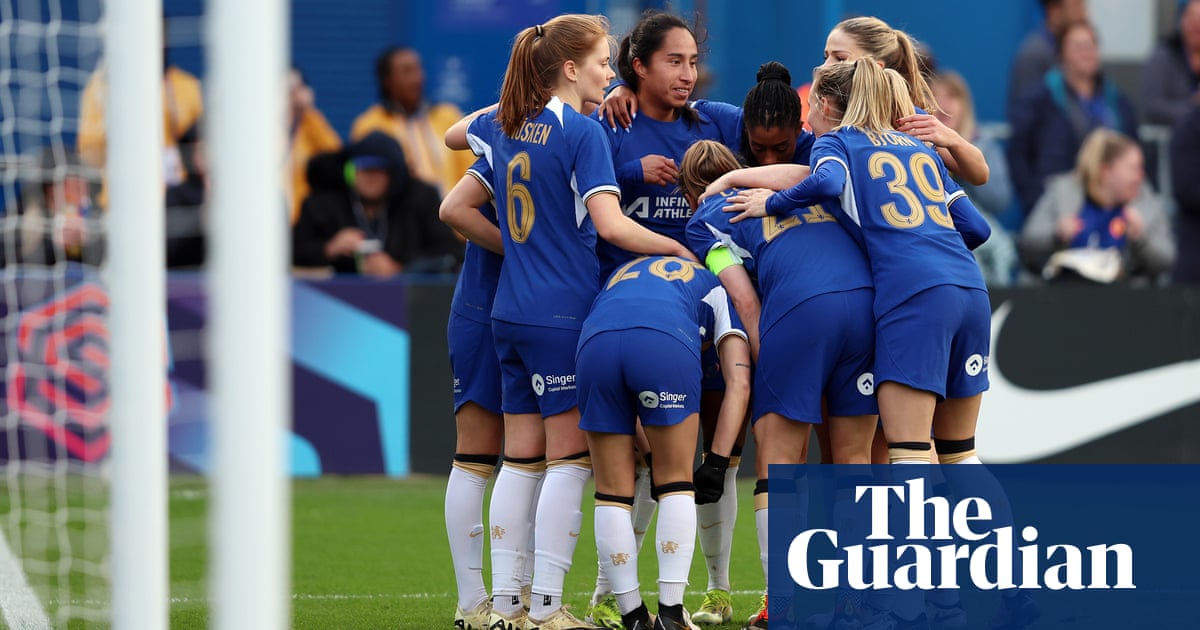
They still bear the scars. All of them. Scars from being infantilised, torn down, belittled, mocked, abused and divided.
Despite having confronted a status quo and a system built to protect and extend the stranglehold of those in power, with the odds against them, and having come out the other side, the scars are visible in the tears, the emotive retellings, and the stoic faces of the members of Spanish women’s national team.
So much of the story around the final of the 2023 Women’s World Cup and the infamous kiss – a kiss he claims was consensual and which she says was not – that the then president of the Spanish football federation, Luis Rubiales, planted on Jenni Hermoso during the medal ceremony after Spain defeated England 1-0, was played out in the press. Yet so much of the story has been untold, the players’ voices stifled, beyond a collective statement condemning the action, amid the pomposity and bravado which Rubiales and his minions used to trample suggestions that his action amounted to sexual assault and crush any opposition to his regime as the head of the RFEF.
Now, over a year since Rubiales was forced to resign from his position, the curtain has been pulled back, the Netflix documentary It’s All Over: The Kiss That Changed Spanish Football has put the players’ voices front and centre, where they should always have been.
This feature-length documentary is extraordinarily powerful. While the events around the World Cup are the climax, there is a patient scene setting. The struggles of the players under the former manager Ignacio Quereda, who spent 27 years in charge of the side without collecting silverware, are brutally detailed: they explain how they were treated like they “were his little girls” with the manager “squeezing [their] stomach rolls”; vulgar comments are exposed; the regular technical sessions where Quereda had marked out 12 players instead of 11 on the whiteboard are mocked.
Those trials are not new. Players had complained about Quereda as early as 2011 and the team complained collectively in 2015 after a disappointing World Cup exit. Meanwhile, the 2021 documentary Breaking the Silence further exposed Quereda’s regime. The difference this time is that the players are being heard and believed instead of branded troublemakers.
Despite the removal of Quereda, the pattern remained the same. Jorge Vilda was handed the job after he had been brought into the RFEF coaching fold by his father, Ángel, an ally of Rubiales. The documentary highlights just how powerless the players were as Vilda operated as sporting director and manager, essentially being his own boss. “He shook his own hand and [his contract] was renewed,” says one of the players, Sandra Paños.
The players explain how Vilda, a mediocre coach who claimed his dismissal in September 2023 was “not deserved”, created a controlling environment, going into players’ hotel rooms at night to talk with them, checking their shopping bags, controlling their media duties and more. “He was aware he was an average coach,” says the former Spain international Vero Boquete. “And, when you end up in a national team with demanding players, you’re scared of what they’re going to do. He was afraid we would speak out, so that’s why he wanted to have control over us.”
When Irene Paredes, a key voice in the documentary alongside Alexia Putellas, Aitana Bonmatí and Hermoso herself, messaged Rubiales to raise the concerns of the players about the setup on behalf of the captains’ group after their failure at the 2022 Euros the response from the RFEF president – who is shown as being on call for the men’s team players, at one stage arranging a new watch for Sergio Ramos – is uncompromising, with that private conversation then appearing in the press.
When a letter requesting better coaching and conditions signed by 15 players, dubbed “Las 15”, was published in the press (leaked, according to the players, by the federation) they were accused of demanding the sacking of Vilda, of throwing a temper tantrum and of being unpatriotic. Meanwhile Rubiales and Vilda were praised for their no-nonsense response to what was described in some quarters of the press as a mutiny and blackmail.
Rubiales’ behaviour at the World Cup went far beyond the forced kiss of Hermoso. He is shown giving a cringey team talk before the semi-final with Sweden where he implores the players to answer him when he asks: “Who has more ovaries, us or them [the opposition]?” He is shown kissing Olga Carmona on the cheek at one point and lifting her over his shoulder at another. He is shown grabbing his crotch and gesturing to Vilda while standing next to members of Spain’s royal family. “I remember he was out of control,” says Paredes of his actions during the medal presentation.
The documentary fleshes out the scenes around the celebrations afterwards too, demonstrating how selective the clips leaked to the press of Hermoso and her teammates enjoying themselves were. The attempts to paint Hermoso’s smiles as validation of Rubiales actions are torn apart in clearly uncomfortable footage from the time and in the words of the forward herself when she says: “Why wouldn’t I smile? Why should I stop living life? Because they made me feel bad?”
Meanwhile, players recount details of the extraordinary pressure Hermoso and her friends and family came under to play down the allegations, with zero regard for the impact on the forward and the incredible online abuse that followed as Rubiales dug in.
One of the most devastating features of the documentary shows how relationships between the players – victims of divide and rule tactics – became fractious. Members of what would become “Las 15” express their disappointment and frustration that others – who would go on to be rewarded by Vilda for their silence, which was perceived as loyalty – did not say anything in a team meeting they describe as an ambush.
Those who did not speak up express some regrets, though Carmona, who does not talk about the decision to keep playing, went on to score the winning goal in the World Cup final and Ivana Andrés, who said: “The price we have to pay is very high and I don’t want to miss a World Cup”, captained the side. Meanwhile, the Arsenal defender Laia Codina, breaks down when she attempts to justify the decision to accept Vilda’s call up to the national team after many of her “Las 15” Barcelona teammates had withdrawn their services. There is a clear Barcelona and Real Madrid divide, though the question of whether pressure was put on Madrid players to not withdraw by their club, which was raised as a possibility in the press, is not discussed.
Divisions remain. Mapi León, who does not feature in the documentary, has not played for Spain since withdrawing from national team duty before the World Cup. Neither has Lola Gallardo or Paños, who both contribute to the programme, the latter saying she had written to the RFEF saying she wanted to play at the World Cup as it could be her last, but that she did not get a reply or even an acknowledgment of it being received. Of “Las 15”, Gallardo says only seven remained firm, with players such as Paredes, Putellas and Bonmatí deciding that enough concessions had been made before the tournament for them to take part.
It is the kiss that reunites them all, the abuse and then attempted victimisation and manipulation of one of their own, in Hermoso, a step too far. But the scars of the entire period clearly still run deep.
Get in touch
If you have any questions or comments about any of our newsletters please email moving.goalposts@theguardian.com.












